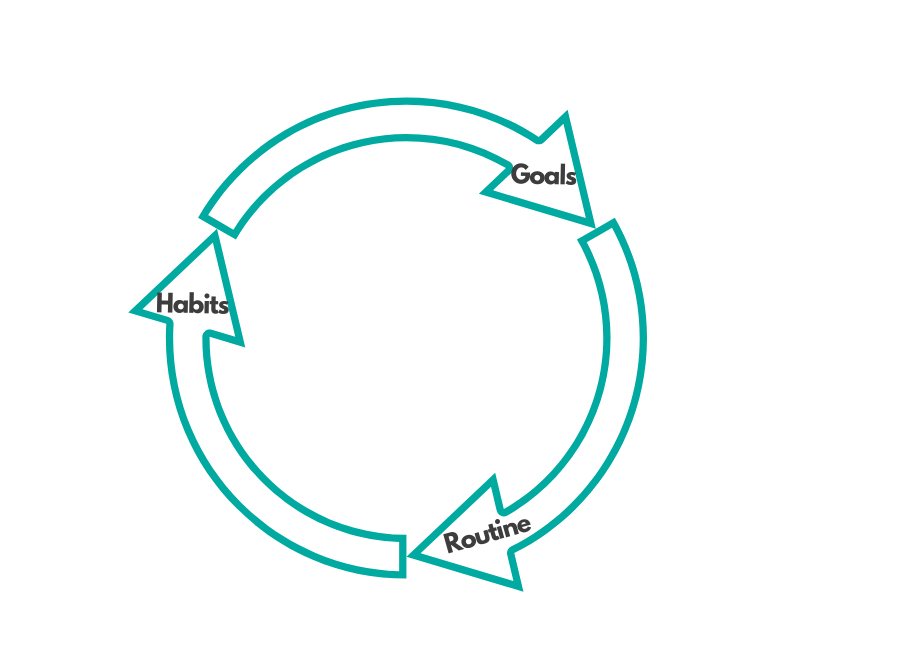Ready, Set, Goal!
“You got to be careful if you don’t know where you’re going, because you might not get there.”
– Yogi Berra
The third blog in our series on habits explores the power of setting goals. Setting a goal allows you to have a focus and a vision in your day to day routines. It give you motivation to continue to push forward towards something bigger.
It isn’t the pinnacle of a successful habits though. In fact, it is the routine you set around the habit that will accelerate success. You should be looking at the method, and not just the outcome.
Goal setting is an important cog in this system as it provides motivation and encourages people to stay on the right track. Your goal, routine and habit should all be working together in tandem to best achieve success.
So how do you incorporate goals into your habit building? Here’s the process we recommend:
1. Create a goal based on what you want to achieve, e.g. I will become a profitable trader within three months
2. Decide on a habit that will help you achieve this e.g. I will stop trading after I have two losing trades in a row
3. Decide on your process to achieve this, e.g. I will set up discipline alerts that pop up when I have had three losing trades in a row. (Try this for free here)
4. Measure yourself against your goal periodically, e.g. Each week, look at how many times you continued trading after getting a pop up alert, and see how much it cost you in trading P&L. This will help re-inforce the habit.
Now that you know where goal setting fits into habit building, how do you choose the right goal that will aid your success?
When deciding on a goal, you should keep three things in mind:
1. It is important to not only think of the reward you want to enjoy, but also what cost you are willing to pay to achieve it. This will help rule out goals that aren’t truly important to you. Everybody wants a gold medal. Few people want to train like an Olympian.
2. The goal should be hard enough for you to need to work for it, but not so hard it’s unobtainable. If you want long term success in trading, your goals need to be realistic, and specific. If you are a losing trader, don’t set a goal of “I want to make a million in a year”. Instead, a better goal would be “I want to breakeven for 3 consecutive months.”.
3. The goal should be easily measurable. There is no point in setting an amazing goal if you are unable to measure your progress against it regularly. Choose something that you can check in with on a daily or weekly basis, and measure how you are performing against it. An important point to this is that the measuring does not need to be specific.For example, if you are trying to lose weight, you might think it is a good idea to buy a top of the range weighing scale that measures your weight to the decimal.
You weigh yourself every morning to track your progress. You might be hindering your weight loss journey doing this. This is because we expect instant results, so if there has been no changes in 3 days, we can get frustrated and give up. Behavioral scientists found out that by removing the specific numbers from the scale, and replacing it with a scale that give feedback in bands (e.g you are on track, you are slightly below your goal, you are substantially below your goal), people lost weight more consistently. The measuring doesn’t need to be precise in order to be effective.
To summarize, goal setting is an important part in the process of forming successful habits. Choose a goal that is sustainable, measurable, and worthwhile to you specifically.
More on habits:



